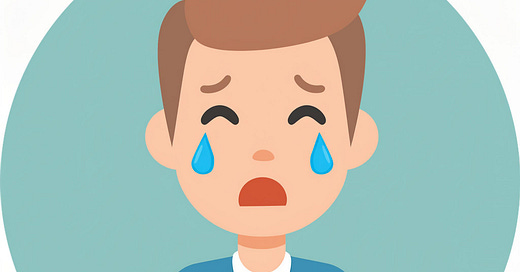Emotional Stressors and Storage
TLDR - Emotional stressors have various biological impacts on your body. Your emotional responses to these stressors can then be stored and repeated during future encounters.
Negative Emotional Memories and CDR
Negative emotional memories can be stored in our body and reactivated when we encounter a similar situation or trigger. If you had a negative experience with a particular environment or object, your body may store the emotional memory of that experience. When you are reintroduced to the same environment or object, your body recalls the previous negative emotion, triggering your autonomic nervous system to activate the sympathetic nervous system, initiating the "fight or flight" response.
The resulting danger response may have many different forms. Below lists a few:
Neurotransmitter Release: Emotions trigger the release of neurotransmitters such as serotonin, dopamine, and norepinephrine. These chemicals facilitate communication between neurons and influence mood, energy levels, and physiological responses.
Hormonal Changes: Emotions like stress, excitement, and happiness cause the endocrine system to release hormones such as adrenaline, cortisol, and oxytocin. Adrenaline, increases heart rate and blood flow, providing a burst of energy to prepare the body for action (the "fight or flight" response).
Increased Heart Rate and Blood Pressure: Emotions can cause the heart to pump faster, increasing blood flow and oxygen delivery to muscles and organs. This physical change provides the body with the energy needed to respond to emotional stimuli.
Respiratory Changes: Emotional states can alter breathing patterns. Rapid, shallow breathing is common during stress or anxiety, while deep, slow breaths are associated with calm and relaxation. These changes in respiration affect oxygen and carbon dioxide levels in the blood, influencing energy production and utilization.
Metabolic Changes: Emotions can affect metabolism, altering how the body converts food into energy. Stress can increase the metabolic rate, leading to greater energy expenditure.
Biological Storage of Information
My Biological Crystals and Information Storage post talks through how the biological crystals in your body can store information. The more you feel certain emotions, the more your body remembers them, making it easier to repeat those emotions in the future. This contributes to either positive or negative emotional loops, explaining why it can be difficult to break out of negativity.
Autonomic Nervous System and the Subconscious
My The Autonomic Nervous System and The Subconscious Mind post goes into detail on what the Subconscious is and how it relates to the Autonomic Nervous System. My Subconscious Mind post also explains how you can tap into it and override negative emotions that are stored.



